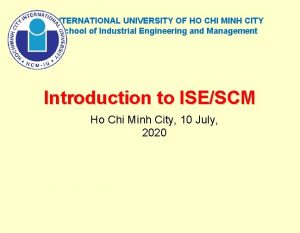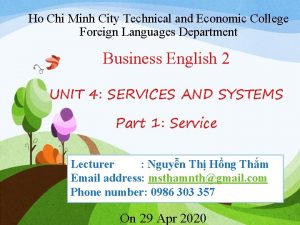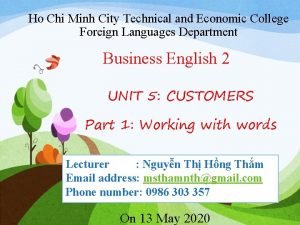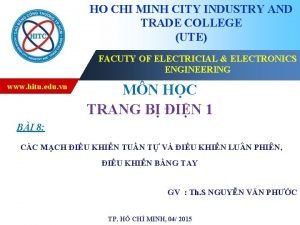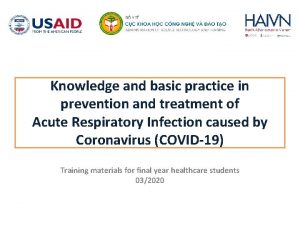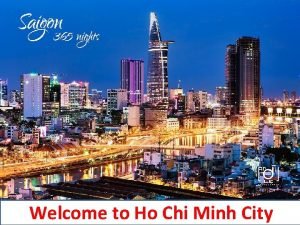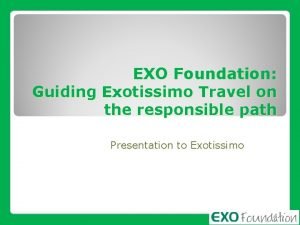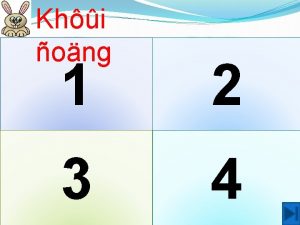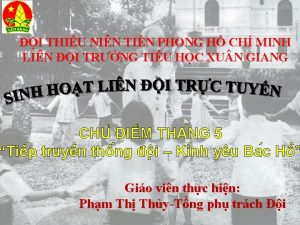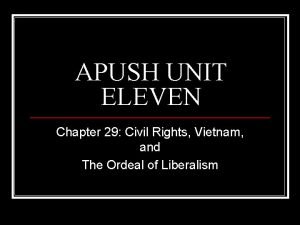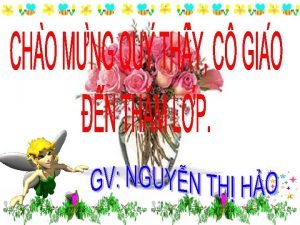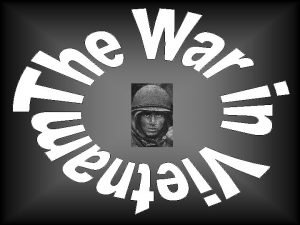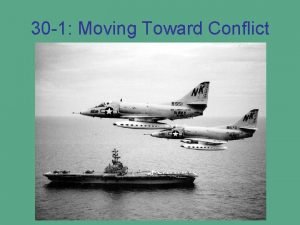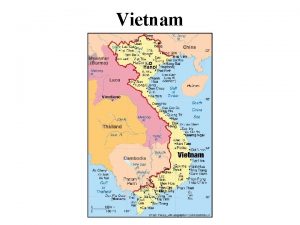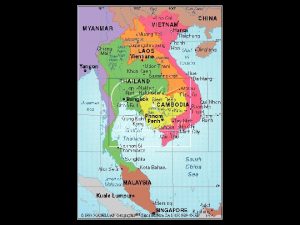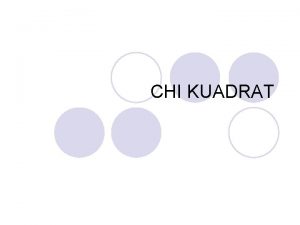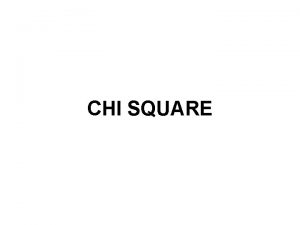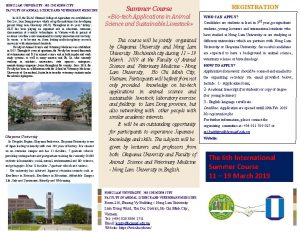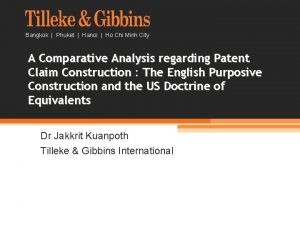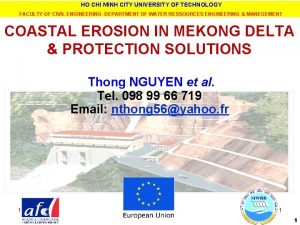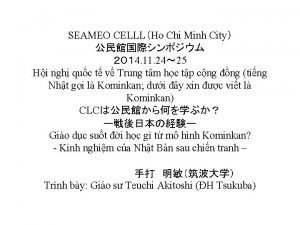Earth Check Exotissimo Ho Chi Minh City Assessment













- Slides: 13

Earth. Check @ Exotissimo Ho Chi Minh City Assessment results 2012 -2013

Agenda What is Earth. Check and why is it useful? Results, impacts and improvement: 1. 2. 3. Energy consumption and CO 2 emissions Waste generation Water consumption

1. What is Earth. Check? n n Tool to measure the company’s performance in sustainability monitoring, benchmarking and improvement! Sustainability policy + 4 Indicators: q q Energy consumption (includes electricity, transport) CO 2 emissions (from energy, greenhouse gases) Water consumption (tap water) Waste generation (quantity and quality)

2. Energy and CO 2: results and impacts Electricity consumption – CO Emissions from electricity purchased: n 2 Climate Change 2012 2013 k. Wh 197368 185758 CO 2 (t) 82 80. 5 Evolution The carbon emissions decreased about 2% in one year You saved the equivalent of carbon sequestered in 38 trees Or the equivalent of 620 liters of gasoline -2%

2. Benchmarking energy Energy Consumption (2012) was 947. 4 MJ / m 2: 35. 6% better than the Best Practice level. Greenhouse Gas Emissions (2012) was 109. 3 kg CO 2 -e /m 2: 0. 6% worse than the Baseline level.

2. Energy and CO 2. How to improve? n n n Share transport or move by bicycle: it’s cheaper and healthier! Switch off all lights and electric devices when leaving the office (also PC screen and printers!) Use daylight: Seeing the outside is also relaxing! Avoid overusing air conditioned. If the room is too cold, turn A/C off for a while instead of opening doors. For the last tea/coffee of the day, boil only the amount of water you need. Revisions and maintenance of air conditioned and electric appliances should be done periodically.

3. Waste: results and impacts n Waste generation q (mostly paper, take away packaging and food leftovers) 2012 2013 Total year (kg) 1260. 13 1275. 28 Daily average (kg/day) 4. 77 4. 83 Households equivalents 2. 08 2. 11 Where is it stored or treated?

3. Benchmarking waste Waste Sent to Landfill (2012) was 5. 6 L /m 2, which was 73. 3% better than the Best Practice level. Landfills are finite and difficult to control. Risks for health and nature

3. Waste: How to improve? - The 3 R n Reduce: q q q n Reuse: q n Print less, on both sides, reduce margins, Garamond or Calibri 11, on-screen reading/editing options. Avoid take away styrofoam boxes, plastics bags, glasses, straws… go out to eat lunch. For staff parties, use paper plates and cups, or hard plastic which can be cleaned up after use. Use draft/spare paper. Print small docs in small paper Recycle: q Before throwing it away; can it be re-used or donated?

4. Water: Results and impacts n Potable (tap) water consumption (2013) Total 2012: 32, 160 l Equivalences with exo office? Total 2013: 36, 960 l Average yearly consumption of water for one household (320 working days) = 54, 756 l

4. Benchmarking water n Potable (tap) water consumption Potable Water Consumption (2012) was 32. 2 L / m 2: 96. 2% better than the Best Practice level. Congratulations, keep saving water, it is precious and quality water is not available for everyone.

3. Water: How to improve? n n Flush the toilet only AFTER using it. Water distributor (tank) and glasses in the meeting room to reduce the amount of bottles used and being thrown away half full. Offer bottled water in glasses, so that the water that is left can be safely drank or reused. Avoid open water storages like buckets in the office: mosquitoes grow there (dengue!). Empty the buckets every 2 -3 days.

Thanks for your attention!
 Ho chi minh city international university
Ho chi minh city international university Ho chi minh city technical and economic college
Ho chi minh city technical and economic college Ho chi minh city technical and economic college
Ho chi minh city technical and economic college Ho chi minh industry and trade college
Ho chi minh industry and trade college Covid ho chi minh city
Covid ho chi minh city Welcome to ho chi minh city
Welcome to ho chi minh city Exotissimo
Exotissimo Thành phố hồ chí minh nằm bên sông nào
Thành phố hồ chí minh nằm bên sông nào Lập đội thiếu niên tiền phong hồ chí minh
Lập đội thiếu niên tiền phong hồ chí minh Nnn
Nnn đội thiếu niên tiền phong hồ chí minh
đội thiếu niên tiền phong hồ chí minh Ho chi minh 1945
Ho chi minh 1945 What did the vietminh declare as its main goal
What did the vietminh declare as its main goal đổi địa chỉ logic sang địa chỉ vật lý
đổi địa chỉ logic sang địa chỉ vật lý
